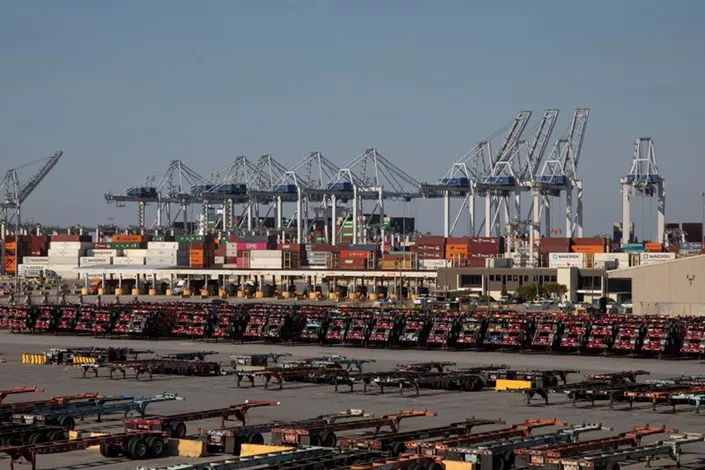U.S. container imports surged in April as businesses rushed to bring in goods before steep new tariffs took effect. But the country’s two busiest ports now expect a sharp decline in imports starting in May.
Imports rose 9.1% in April compared to the same time last year, reaching more than 2.4 million 20-foot equivalent units (TEUs), according to logistics firm Descartes. That made it the second-highest April on record.
Shipments from China increased by 6.2%, making up more than one-third of all imports. China remains the top U.S. trading partner by sea.
The spike came ahead of a major trade policy shift. On April 9, former President Donald Trump imposed a 145% tariff on Chinese goods, more than doubling their cost for American buyers. Retailers like Walmart and Amazon responded by cutting or canceling some factory orders. Trump also set a 10% tariff on imports from several other countries and warned rates could rise further.
Gene Seroka, Executive Director of the Port of Los Angeles—the busiest U.S. seaport—expects import volumes there to drop 35% year-over-year this week. He said overall shipping traffic for May could fall by around 20% as shipping companies cancel voyages amid weakening demand.
The neighboring Port of Long Beach, another key gateway for Asian imports, is also bracing for a slowdown. CEO Mario Cordero predicts that May volumes at both Southern California ports will decline by 30% compared to last year.
Shipping giant Maersk reported that cargo volumes between the U.S. and China plunged 30–40% in April. The company warned that a prolonged trade conflict could reduce global container traffic in 2025. Since it takes weeks for ships to cross the Pacific, the full effects of the slowdown are expected to appear in May’s import data.
Asked about the decline in port activity and potential job losses for truckers and dockworkers, Trump told reporters Thursday, “That means we lose less money.” He did not explain how falling import volumes and lower customs revenue would save money.
Container imports are closely watched as an economic indicator. They reflect not only consumer goods but also raw materials used in U.S. manufacturing. In past downturns—such as the 2020 pandemic—port activity also fell.
Descartes warned that continued trade policy shifts, global instability, and the recent expiration of duty-free limits on small shipments could further disrupt supply chains. The company said the full impact of the new tariffs and the May 2 end of the “de minimis” exemption on low-value Chinese imports has yet to be seen in shipping data.
Related topics:


